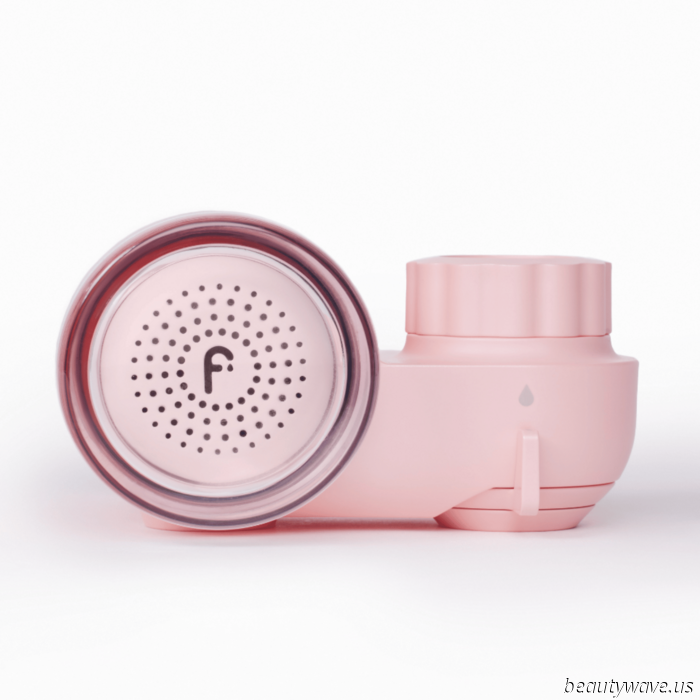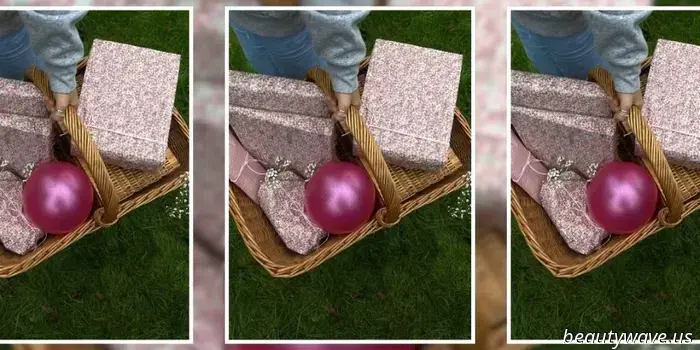
Experiencing dry skin and damaged hair? Hard water might be the reason—here's how to address it.
Several years ago, as a young person in my twenties, I relocated to Los Angeles. My initial weeks on the West Coast were enjoyable. I relished the beginning of my career, exploring new sights, and meeting new people. However, I also observed something troubling: my skin appeared unusually dull and irritated, and my hair was similarly lackluster—flat and resembling straw. I was using the same beauty products as before, and my lifestyle hadn't changed significantly, so I wondered what the issue could be. Eventually, I concluded it was the water. My shower left orange rings, my cleanser and shampoo didn’t lather as effectively as they once did, and my skin and hair never felt clean. I was contending with hard water, having previously been accustomed to soft water. If you think water can't have that much of an impact, reconsider. Experts explain that hard water versus soft water significantly affects skin and hair. One type leaves them soft, supple, and shiny, while the other results in dullness, roughness, and a buildup of residues. Read on to discover the reasons behind this and what remedies exist.
**Hard Water vs. Soft Water**
To understand this distinction, we need to clarify what makes water "hard" or "soft." Helen Reavey, a celebrity trichologist, hairstylist, and founder of the scalp care brand Act+Acre explains, "Hard water is simply water that’s high in dissolved minerals—primarily calcium, magnesium, and iron. These minerals build up as water moves through soil and rock. Conversely, soft water is either naturally low in minerals or has been filtered to eliminate them." Dermatologist Timothy Tran, MD of Westlake Dermatology, adds, "The more minerals present, the 'harder' the water."
As odd as it may seem, these dissolved minerals can have a significant impact on both skin and hair (more on that shortly). Whether you're dealing with hard water often depends on your geographical location. According to dermatologist Donna Hart, MD from Westlake Dermatology, hard water is commonly found in "areas with elevated limestone or chalk deposits where water filters through these geological formations."
*Editor's Note:* You can determine if you have hard water by using this interactive map. Zoom into your state or input your zip code to view the average water hardness in your region. Below, you’ll find additional signs indicating the presence of hard water.
**How to Identify Hard or Soft Water**
It's quite simple to determine if you have hard water. Tran offers some key indicators:
- Face wash, soap, body wash, and shampoo do not lather well.
- You notice white spots on glassware and dishes.
- There is a chalky, white buildup around faucets and showerheads.
- Your skin feels dry, and your hair appears dull.
- Your clothes feel rough after washing.
Hart mentions that hard water can even contribute to low water pressure due to mineral accumulation. Reavey adds, "If your hair remains dull regardless of how frequently you wash it, it's likely you're facing hard water issues." This certainly clarifies my challenges with hair in Los Angeles.
**Effects of Hard Water on Hair**
As you might expect, hard water is detrimental to both skin and hair. "It can leave hair feeling dull, dry, and frizzy," Hart explains. This occurs because the mineral content in the water builds up and creates residue on the hair shaft, complicating the proper rinsing of products. Tran concurs, noting that hard water can make hair feel dry, heavy, brittle, and more difficult to manage. It might also lead to faster fading of color-treated hair.
Reavey points out a few additional negative effects: "You might observe that your hair feels dry or straw-like, lacks shine, tangles more easily, or that your scalp feels tight and itchy. A warning sign is when your styles won't hold or your color fades quicker than anticipated. That residue is essentially forming a barrier between your hair and any products you apply."
Moreover, she explains that hard water affects both hair and scalp health: "Hard water is subtle—it doesn't just dry out your strands; it weakens them. The minerals cover the hair shaft, obstructing moisture, weighing down the hair, and increasing its susceptibility to breakage, frizz, and tangles. It can even disrupt your curl pattern. For those who dye their hair, hard water can lead to premature fading of color by lifting color molecules from the hair shaft. Additionally, the buildup inhibits your products from functioning effectively."
Your scalp suffers as well. Hard water can strip away natural oils, leading to dryness, itching, and irritation. The mineral residue can block follicles, disrupt the microbiome, and trigger conditions such as dandruff or eczema. Over time, this stress on the scalp can contribute to hair thinning and shedding.
**Effects of Hard Water on Skin**
For the skin, similar deposits can occur, which can clog pores and











Other articles
 This Week's Meteor Shower Will Impact Our Romantic Lives—These Zodiac Signs Will Experience It Strongest
This week, the Lyrid meteor shower is stirring things up astrologically. These zodiac signs will be impacted the most.
This Week's Meteor Shower Will Impact Our Romantic Lives—These Zodiac Signs Will Experience It Strongest
This week, the Lyrid meteor shower is stirring things up astrologically. These zodiac signs will be impacted the most.
 Top Mother's Day Presents Priced Under $25
I love you, Mom!
Top Mother's Day Presents Priced Under $25
I love you, Mom!
 Pastry chef Zina Ovstein and the Ararat Park Hyatt Moscow hosted an Easter brunch in the capital
Pastry chef Zina Ovstein and the Ararat Park Hyatt Moscow hosted an Easter brunch in the capital
The Ararat Park Hyatt Moscow Hotel, located in the very center of the capital, next to the Bolshoi Theater, just a few steps from Red Square and the business center, teamed up with pastry chef Zina Ovstein to give its guests the atmosphere of an unforgettable holiday. On April 16, on the eve of Easter, Zina Ovstein gathered charming girls for a family event in the panoramic restaurant-bar "Conservatory" with a magnificent view of the Kremlin. In that…
 I Never Believed I Could Restore My Damaged Curls—These Expert Tips Helped Me Start Over.
Having issues with damaged curls? These tips and product suggestions, endorsed by experts, can assist in rejuvenating your hair.
I Never Believed I Could Restore My Damaged Curls—These Expert Tips Helped Me Start Over.
Having issues with damaged curls? These tips and product suggestions, endorsed by experts, can assist in rejuvenating your hair.
 16 Cool Kids' Items for Spring, Approved by Moms
An editor showcases adorable children's apparel from H&M's spring lineup.
16 Cool Kids' Items for Spring, Approved by Moms
An editor showcases adorable children's apparel from H&M's spring lineup.
 This Mid-Century Residence Demonstrates the Impact of "Gentle" Renovations.
With "gentle" renovations, Carrie Waller turned a vintage space into the nostalgic ranch she envisioned. View the complete home tour here:
This Mid-Century Residence Demonstrates the Impact of "Gentle" Renovations.
With "gentle" renovations, Carrie Waller turned a vintage space into the nostalgic ranch she envisioned. View the complete home tour here:
Experiencing dry skin and damaged hair? Hard water might be the reason—here's how to address it.
Hard water can be detrimental to your skin and hair, but fortunately, there is a solution. Here’s what the specialists want you to understand.
